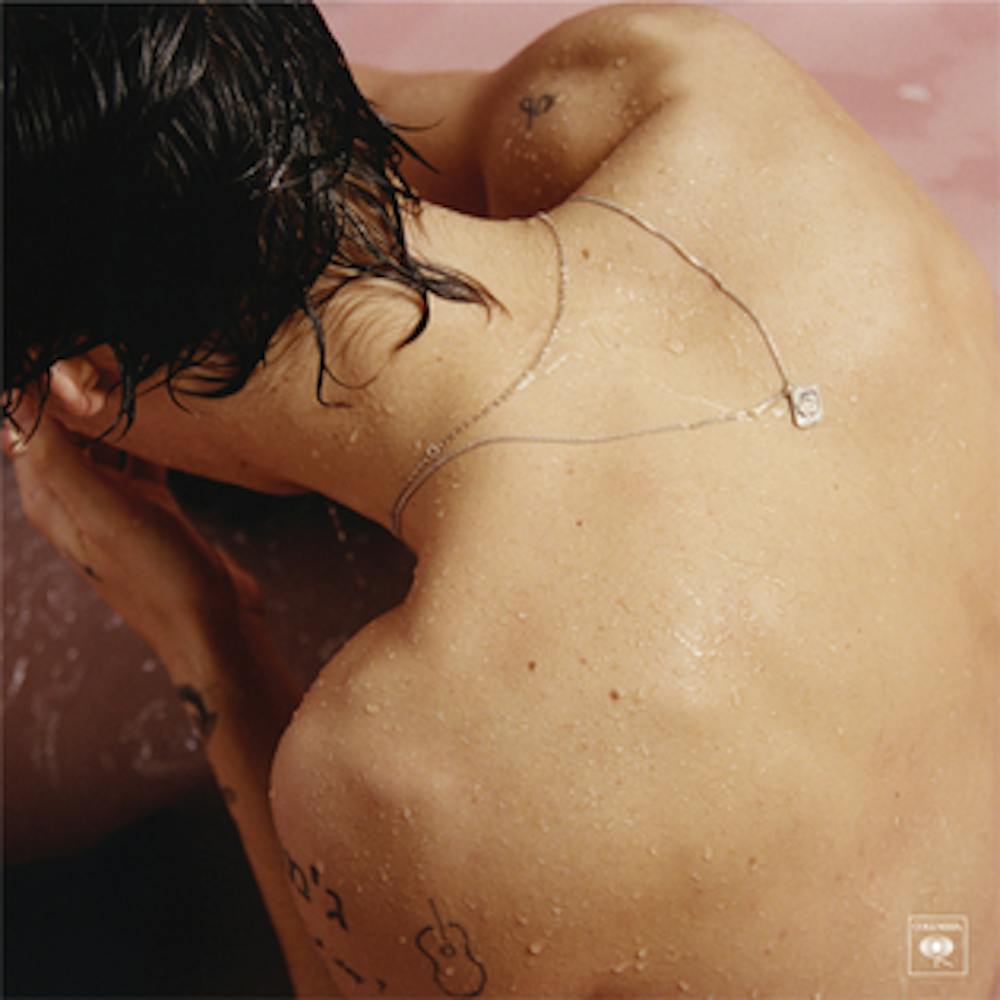Even during One Direction’s heyday as a glossy, well-coiffed hit machine in the early 2010s, it was clear that Harry Styles had been anointed for something greater. The formerly mop-haired heartthrob was the group’s most charismatic figure, racking up PR-friendly flings with American starlets and evoking comparisons to a young Mick Jagger. The five-piece British boy band has since disbanded on an indefinite hiatus, freeing its members to pursue respective solo projects. Yet Styles’ self-titled debut seems curiously old-fashioned for someone aspiring to modern pop stardom — not containing any guest features from trendy vocalists, nor even lip service to the kind of dancehall, R&B or EDM-inflected beats that characterize today’s Top 40.
“Harry Styles” sounds more intimate than any of One Direction’s slickly produced oeuvre, drawing more from classic rock and enlisting only a sparse backing band to accompany its leading man. This, too, could be a calculated choice — it seems to be part of Styles’ resolute mission to be seen as an authentic-with-a-capital-A artist — yet even listeners who approach this record with cynicism will likely be charmed by his feel-good performance.
The album sets its serious tone early by opening with “Meet Me in the Hallway,” a plaintive, acoustic plea that finds Styles struggling to salvage a dying relationship. He begs a former flame to “give me some morphine” and “just take the pain away” — the kind of generic laments that would usually ring hollow coming from a lesser performer. However, Styles’ higher-register wail renders this desperation real, even genuinely affecting.
He cranks up the theatricality with “Sign of the Times,” a nearly six-minute rock track whose title seems to be a brazen allusion to Prince’s similarly-titled 1987 album. Yet, the song’s slow-burn bombast has little in common with Prince’s sound. It starts off with a leaden piano line before Styles breaks into falsetto in anticipation of the chorus — a sweeping, orchestral ascent that recalls David Bowie’s “Life on Mars.” It’s a stirring, showstopping number reportedly from the perspective of a dying mother giving birth, invoking eschatological imagery with lines like “welcome to the final show” and “they told me that the end is near / We gotta get away from here.”
The more folksy, pared-down tracks “Two Ghosts” and “Ever Since New York,” which both wistfully describe an estranged relationship, are the most overtly personal songs on the album. Details like “same lips red / Same eyes blue” will inevitably spark tabloid speculation, but the most interesting revelations are embedded within more mundane descriptions. “The fridge light washes this room white / Moon dances over your good side / This was all we used to need” offers a rare, quiet moment of true vulnerability.
Yet Styles eagerly takes on more playful lyrical personae as well. “Carolina,” a rollicking ‘70s pastiche that narrates the rise of a Southern girl who moves to California, sounds like the hipper daughter of Stealers Wheel’s 1973 hit “Stuck in the Middle With You.” Its hook yowls “she’s a good girl / She feels so good!” alongside whooshing, manic “la la las” and “oh yeahs!” — maybe not the most profound observation, but certainly a lot of fun. Similarly, the jealous “Woman” is a decidedly simple throwback — its chorus little more than the title word being repeated over a barbed, bluesy beat. Yet its spoken intro, which casually suggests, “Should we just search romantic comedies on Netflix and see what we find?” implies that Styles has a more self-conscious, tongue-in-cheek take on modern romance.
The album’s other fast-paced tracks evoke fellow Englishmen Arctic Monkeys, a more contemporary influence — both in their gritty stomp-along guitar licks and lyrical allusions to beautiful girls who are no good. Styles sings about a heavenly vixen who nevertheless becomes a “devil in between the sheets” on “Only Angel,” and moons over “hard liquor mixed with a bit of intellect [...] such a pretty face, on a pretty neck” on “Kiwi.” While his come-ons might not employ the cleverest wordplay, Styles’ vibrant delivery is nevertheless enough to reel audiences in.
This steadfast commitment is what makes “Harry Styles” a winning step into musical maturity. While Styles might be eager to throw off the yoke of his teenybopper status, that original boy band-borne charm is what holds the album together.





